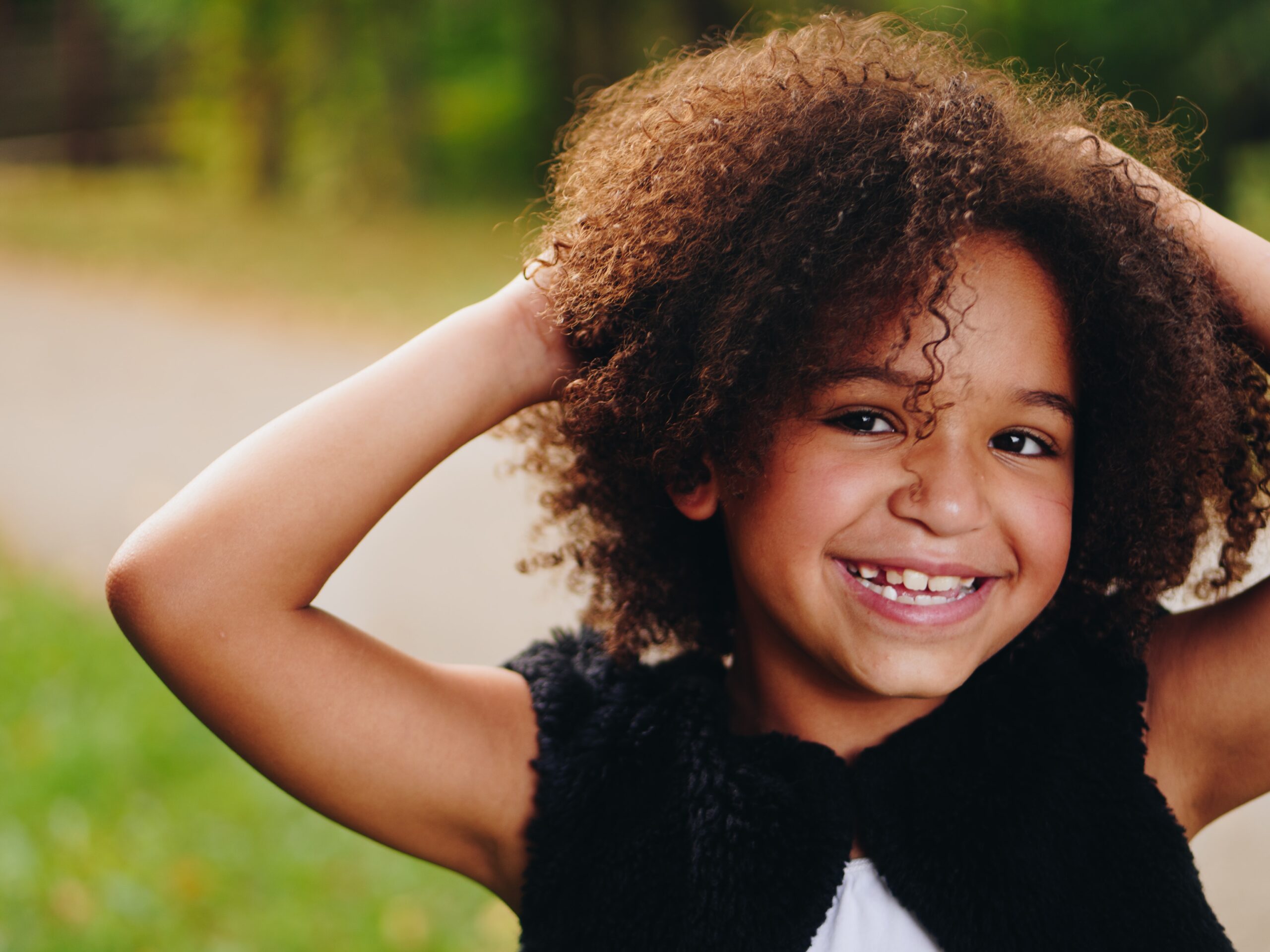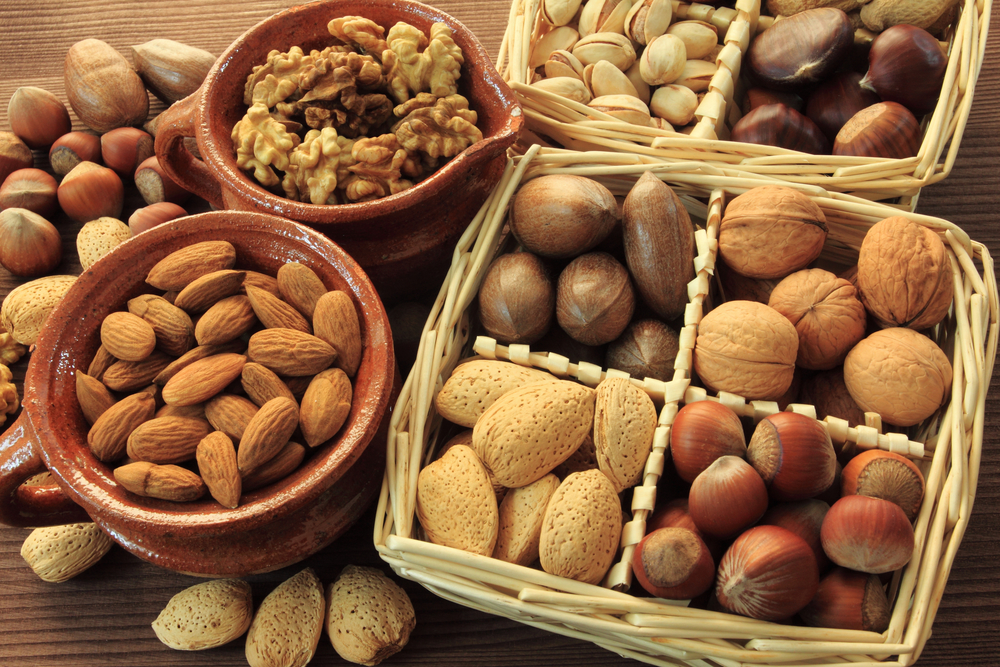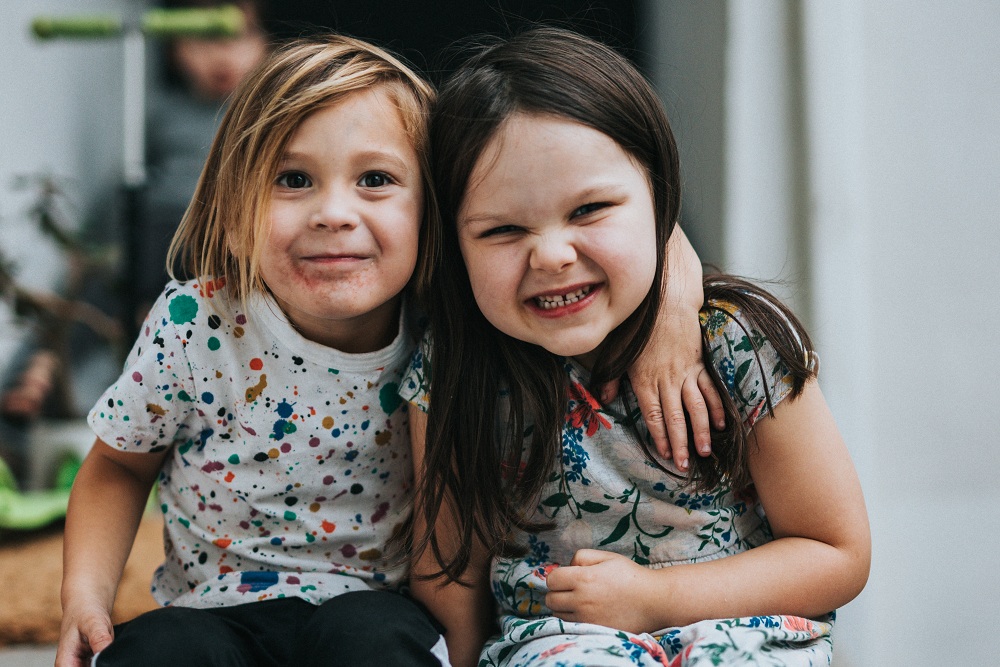By parenting coach & trained counsellor, Rany Moran – ranymoran.com
Discover 6 ways parents can raise and praise strong, healthy children, and protect them from the tolls of body image issues.
Have you ever looked at yourself in the mirror and thought: “I hate how I look”? Now imagine your toddler, niece/nephew, or younger sibling thinking the same thing about themselves, at age four…
It’s a confronting scenario to consider. Children typically tend to be optimistic and carefree—or so we think—especially about how they look, what they’re wearing, or how healthy their meals are. However, according to new research by the Professional Association for Childcare and Early Years (PACEY), 24 percent of childcare personnel witness signs of body-related unhappiness amongst kids as young as 3 years old. That number almost doubles as children get older, with 47 percent identifying similar body image anxieties in 6- to 10-year-olds.
This is why how we talk to our children about beauty and bodies is crucial. But more importantly, it is how we talk to ourselves about it—because as parents, we are the first and primary role models in their lives, and children internalise our words and actions more than we think they do.
How we define what is strong or beautiful will go on to shape their thoughts and perceptions of what looks good, so nurturing a diverse outlook and a healthy level of self-confidence is vital. Here are 6 ways to raise and praise body positive children:
-
Deal with and ditch your own unhealthy habits
If your child sees you obsessing over calories, fat-burning workouts and the number on your scale, chances are, they will too. The same goes for if you’re constantly bingeing on junk food and lounging on the couch. How you carry yourself and live your life as a parent forms the building blocks of your child’s daily habits and self-esteem, as they tend to mirror behaviours while exploring and absorbing the world around them. So instead of those extremes, focus on and talk about the importance of staying strong and healthy. Teach them how all foods fit in a healthy diet, with proteins, fruit and vegetables being just as essential as good fat—dessert included. Emphasising the positive outcomes of balance and satisfaction over the negative effects of restriction or overindulgence is key. Plus, most children already follow the meal times and menus you give them, or otherwise eat intuitively naturally, so you can manage what they consume and how they understand what’s good for growing healthy and strong from a very young age.
-
Normalise conversations and images of all bodies
When we nurture our kids to embrace diversity, we should also include body types. Have conversations with your children about how everyone looks different—from their skin tone and hair colour, to their varying and ever-changing heights and weights. Normalise diversity in every sense, and how one should never expect anyone to look a certain or similar way, because that would be utterly boring, wouldn’t it? More importantly, teach them to never judge another based on how they look, and how getting to know a person beyond their physical attributes will help them discover a whole new world of skills, talents and mutual hobbies—garnering them a brand new friend. Besides talking, you also need to expose them to a variety of real, unedited bodies of all shapes and shades through all sorts of media from TV and YouTube videos to books on racial harmony and body positivity. This, versus always watching traditional celebrity-driven content that more often than not, glorifies one particular look and standard of “beauty” or “masculinity,” which children can be hyper-attuned to.
-
Identify negative thoughts and change the narrative
We don’t ever want our children to speak down to themselves or to others, let alone get affected by petty comments or potential insults passed by bullies at school. But sometimes, what they hear—be it from us parents, other adults, classmates or on the TV—will make them wonder if they too, “should I worry about my ‘double chin,’ ‘big belly’ or ‘flabby arms’?” The key here is to keep a lookout for the little signs: Are their eating habits changing? Is there a piece of clothing that they used to love but refuse to wear anymore? Do they stare at themselves in the mirror a lot? Are they disengaging from daily activities or social interactions? Once you see or simply sense something’s bothering them, address it immediately, with positive reinforcement. If they express even the slightest concern about their legs or arms, for example, tell them that those exact legs are what can score a soccer goal, or peddle their bike; or how their arms give the best hugs and help mummy carry all her favourite snacks. How we can all practice this at home is to spend at least one moment a week talking about something we love about ourselves—this contrary action combats negative thoughts, and can transform the way our kids see and speak to themselves, especially if parents open up about their strengths and not-so-weak ‘weaknesses’ too.
-
Redefine the word ‘fat’
Unfortunately, the word ‘fat’ has a negative connotation to it. But what we need to relearn ourselves, and teach our children, are the different definitions of it. Food wise, we need to consume ‘good fats,’ and our children need to know their existence in delicious and nutritious foods like nuts, avocados, salmon, eggs, and most kids’ favourite, cheese. When it comes to our bodies, fat isn’t a bad thing either—it’s actually an essential source of energy, it protects our organs, and keeps us warm. Continue educating kids with fascinating facts about how muscles weigh more than fat, so one shouldn’t focus on weight but instead how fulfilled they are after each meal, and how strong and energised they feel daily. When it comes to growing up, explain how our bodies change, both naturally and intentionally, and that we have the power to get big and strong with a healthy diet and an active lifestyle.
-
Use positive language for good
Words of affirmation can do wonders for the brain and character development. By praising their positive gestures, skills and words, we cultivate an environment based on doing good—no matter how big or small. The easiest place to start is by watching a movie, and discussing the characters not by their looks but by what they are saying and doing, which will then hone that thought process of focusing on one’s personality or actions first, before outward appearances. At home, encourage problem solving, expressing feelings and exchanging opinions, while also praising them for their inner attributes, like persistence and kindness or their newfound strengths after learning a new skill.
-
Invest in the physical activities they love
Feeling energised, getting stronger and having fun can have tremendous effects on how comfortable and confident kids become with their bodies. Our role as parents is to first, be healthy ourselves—leading a fun, active lifestyle to expose our kids to a host of physical activities to let them explore, discover and sharpen their skills. Some children are natural athletes and thrive in team sports, while others enjoy long bike rides with family, and there are those who might not prefer the outdoors but fall in love with dance. Give your kids a chance to try out different fitness styles and environments before zooming in on what they love. At the end of the day, if they’re breaking a sweat and having a ball, that’s all that matters.

Rany Moran is a Sydney-based resilience expert specialising in personal development, professional development and parenting strategies. She harnesses her unique and multi-faceted perspective as a global citizen, entrepreneur and mother of two to empower others to overcome limiting beliefs and prioritise wellbeing.
Originally hailing from Jakarta Indonesia, over the past decade Rany has dedicated herself to building fully-integrated lifestyle entertainment centres for the entire family across Asia, as founder and chief executive of Amazonia in Singapore, Wowzonia in Jakarta, as well as F&B outlets in Bali.
She is an International Coach Federation (ICF) accredited life coach, trained counsellor, and speaker certified by The Virtues Project, a global grassroots initiative recognised by the UN.
Rany is co-host of the Finding Peace in Parenting podcast, and co-founder of Love One Another with Faith (LOAF) – a non-profit organisation in Indonesia and Cambodia that has raised close to S$1 million for children’s healthcare and education.
You can find Rany on:
Website – https://www.ranymoran.com
Facebook – https://www.facebook.com/Rany-Moran-107249958069354
Instagram – https://www.instagram.com/ranymoran
Youtube – https://www.youtube.com/channel/UCZTBuUmozKmWQH0m_TZ50-Q
LinkedIn – https://www.linkedin.com/in/ranymoran/









